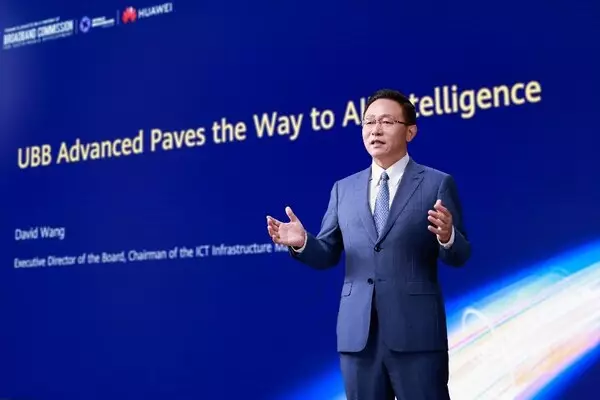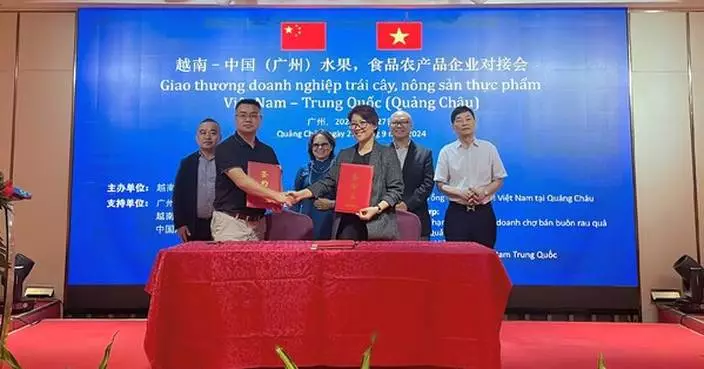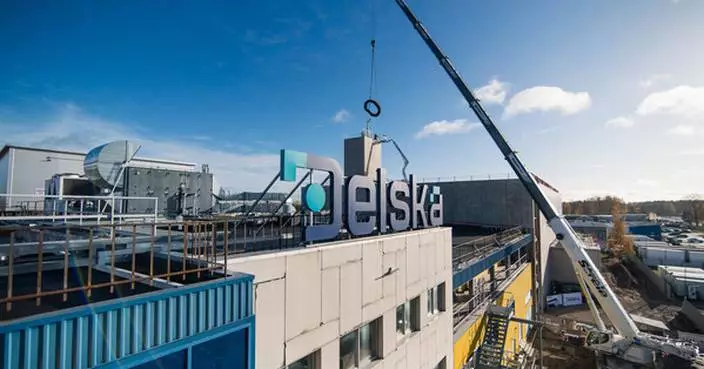MUNICH, Oct. 31, 2024 /PRNewswire/ -- Nagarro, a leader in digital engineering, today announced a global partnership with Marubeni Corporation, one of Japan's largest general trading companies. This collaboration aims to support Marubeni's subsidiary companies and other Japanese corporations in transforming their businesses through Nagarro's digital engineering expertise and unique Fluidic Enterprise offerings.
After months of discussions, Nagarro and Marubeni today concluded a Memorandum of Understanding, commencing a phase in which the model for the strategic partnership will be further explored and refined, with an initial go-to-market focus on the United States.
Noritaka Wakuda, Nagarro's leader in Japan, said, "Nagarro and Marubeni will jointly identify digital-first opportunities at potential clients and seek to deploy the latest technology to elevate their responsiveness, efficiency, client- and employee-intimacy, creativity, and sustainability."
Manas Human, Co-Founder of Nagarro, said, "Nagarro is privileged to have Marubeni as a key partner. By bringing together the Marubeni Spirit and Nagarro's CARING values, we believe we are uniquely positioned to deliver business value to our clients."
As digital transformation technologies evolve rapidly, it is challenging for enterprises to adopt them to drive business success swiftly. With over two decades of global delivery experience, Nagarro exemplifies how agility and a global mindset can enhance operational efficiency and address gaps in firms facing the pressures and opportunities of technological advancements such as Big Data, AI, and cloud computing.
Marubeni recognizes the challenges required to navigate global delivery and embraces a collaborative approach that fosters responsiveness in meeting domestic and global customer demands. Consequently, the partnership between Nagarro and Marubeni to address the needs of two of the world's largest IT services markets is a natural and strategic fit.
About Marubeni
Marubeni Corporation and its consolidated subsidiaries leverage extensive business networks both domestically and internationally to engage in a diverse array of activities, including importing and exporting, domestic business, and third-country trading. Their operations span various sectors, including lifestyle, IT solutions, food, agribusiness, forest products, chemicals, metals and mineral resources, energy, power, infrastructure projects, aerospace and shipping, finance, leasing and real estate, construction, industrial machinery and mobility, as well as next-generation business and corporate development.
Guided by the principles of 'Fairness, Innovation, and Harmony,' Marubeni is dedicated to social and economic development and the protection of the global environment through responsible corporate activities.
For more information, visit www.marubeni.com.
About Nagarro
Nagarro helps clients transform into fluid, innovative, digital-first companies, enabling them to succeed in their markets. The company is distinguished by its entrepreneurial spirit, agility, and global perspective, along with its CARING mindset and Fluidic Enterprise vision. Nagarro employs over 18,300 people in 37 countries. For more details, please visit www.nagarro.com.
FRA: NA9 (SDAX/TecDAX, ISIN DE000A3H2200, WKN A3H220)
For inquiries, please contact press@nagarro.com.
Photo: https://mma.prnasia.com/media2/2545657/Nagarro_Marubeni.jpg?p=medium600
** The press release content is from PR Newswire. Bastille Post is not involved in its creation. **

Nagarro and Marubeni Announce Global Partnership to Leverage Digital Technologies for Japanese Corporates
ISTANBUL, Nov. 1, 2024 /PRNewswire/ -- At the 10th Ultra-Broadband Forum (UBBF 2024), David Wang, Huawei's Executive Director of the Board and Chairman of the ICT Infrastructure Managing Board, delivered a keynote speech titled "UBB Advanced Paves the Way to All Intelligence". When opening the event, he shared his latest insights into the AI industry and elaborated on Huawei's All Intelligence strategy. He also proposed a new direction for the synergistic development of UBB and AI to help the industry reach the intelligent world faster – technological innovation and business incubation.
The Fourth Industrial Revolution has been progressing rapidly thanks to AI, with AI becoming a major driver of global economic growth. Widespread commercial use of AI is accelerating, and new applications for personal use, enterprise efficiency, and smart homes are disrupting multiple markets. It is also driving communications network upgrades, in terms of capacity, latency, and architecture.
In his speech, Wang noted, "Huawei has continued innovating by focusing on two areas: UBB for AI and AI for UBB. The innovation we are doing under UBB for AI is based on ultra-large bandwidth, deterministic low latency, and network architecture. The network capability improvements we've achieved support higher quality AI development which will help carriers achieve business growth. This innovation also focuses on AI for UBB. We are applying AI to networks to improve network experience, to speed up service provisioning, and to streamline network O&M. This helps carriers build highly autonomous networks."
Last year, Huawei released its All Intelligence Strategy to, "show how to connect all things, model all applications, and compute all decisions." Huawei offers leading digital and intelligent infrastructure that provides computing, storage, and transmission power for industry. Huawei is also using its Pangu Models to create advanced industry-specific models, with the aim of supporting a vast range of models and applications, and helping customers from different industries pursue intelligent transformation.
Within the telecom industry, Huawei offers leading AI solutions, which must be supported by transmission power. As critical infrastructure, UBB networks provide this kind of power to help other industries go digital and intelligent more easily. To this end, Huawei advocates two development paths for UBB networks: "UBB for AI" and "AI for UBB".
UBB for AI: high-quality AI development
UBB 5.5G incorporates technological innovation at multiple network layers to support AI requirements.
For data center networks (DCNs), Huawei offers a Dragonfly+ Topology architecture and new DC-OXC technologies that help build large-scale computing centers.
For data center interconnect (DCI) networks, Huawei uses a number of innovative technologies like 800G IP + Optical networking, flexible IP service-flow level scheduling, and lossless transmission to realize more efficient use of computing power across data centers.
For data center access (DCA) networks, Huawei's OXC Mesh networking is capable of greatly reducing network latency. Its Wi-Fi 7 and 50G PON technologies can provide the ubiquitous 10 gigabit access that is necessary for widespread AI adoption by end users. In addition, Huawei's FTTR is already being used to create "intelligent hubs" and enable intelligent applications for many homes.
Huawei's Xinghe security gateway and hybrid ASON also guarantee resilience over end-to-end networks for AI application connections.
These innovations significantly improve bandwidth, latency, availability, and large-scale networking capabilities and will help carriers differentiate themselves in the intelligent era.
AI for UBB: highly-autonomous networks
UBB networks are also becoming larger and handling more complex scenarios, driving carriers to seek new ways to improve O&M efficiency and network autonomy. A promising method being explored is embedding AI directly into networks.
Huawei has built an AI-enabled O&M architecture for UBB networks that uses digital twins and its own Telecom Foundation Model. This architecture enables the creation of intelligent role-oriented "copilots" and scenario-specific "agents" that automate onsite operations and remote maintenance and optimization, which is necessary for the evolution to level 4 autonomous driving networks (ADNs).
Multiple leading carriers have successfully improved their network O&M efficiency by working with Huawei to apply this architecture commercially.
For home broadband, ADNs can support network self-optimization to ensure user experiences, reducing the churn rate by 57%.
For transmission networks, network planning and service deployment efficiency is crucial. ADNs can support service self-planning and deployment based on service level agreements, rather than manual planning. This can cut service provisioning times from one month to one day.
For IP network maintenance, fault location has always been a challenge. ADNs can enable virtual employees to support troubleshooting, reducing network troubleshooting times by 50%.
At the end of his speech, Wang called for the entire UBB industry to actively embrace the intelligent era by pursuing innovation in UBB 5.5G network technologies for long-term competitiveness. He also advocated for industry-wide incubation of new intelligent services in addition to new network capabilities, saying that new partnerships and business opportunities in AI applications will drive intelligent service transformation and new business growth.
** The press release content is from PR Newswire. Bastille Post is not involved in its creation. **

Huawei's David Wang: UBB Advanced Paves the Way to All Intelligence











